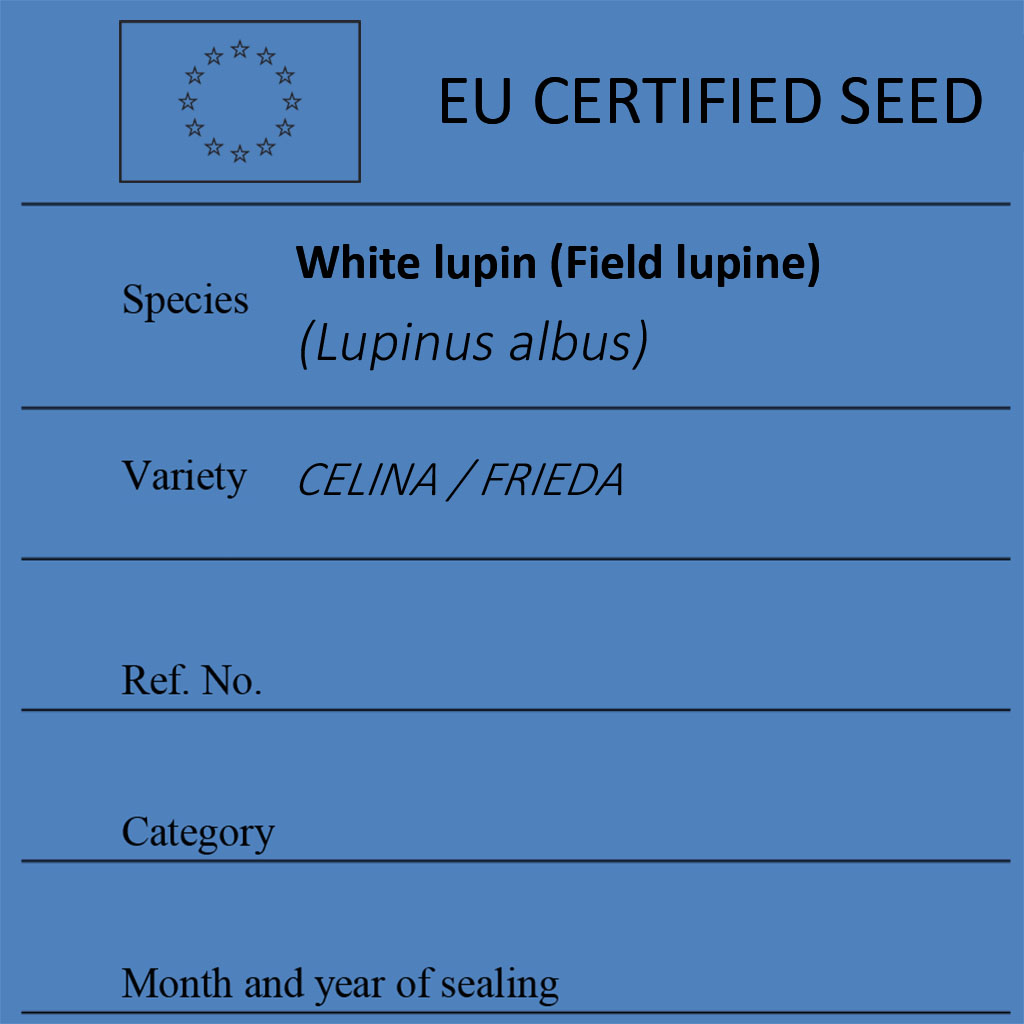Aprašymas
White lupin (Field lupine) – are grown as annual leguminous plants in our region. As with other lupins, the roots contain carboxylates, which release phosphorus from the soil, which is scarcely available to plants, and is therefore desirable in organic crop rotation. They are also called sweet lupins. If immature seeds are used for food, it is recommended to boil them or soak them overnight. When ripe, the seeds are used to enrich pasta, cake mixes, cereals, etc. Later than narrow-leaved, the growing season is 90 to 175 days, so some late varieties may not set seed unless sown very early. However, green mass or siderates are suitable for cultivation. Partially cross-pollinated, when growing seeds for sowing, sowing near other lupins should be avoided. White lupine seeds do not split when ripe, unlike the seeds of other lupine species.
Use: the seeds are used for food and fodder. The plant can be sown for green fodder, grazing, silage, grain or as green manure. Accumulates atmospheric nitrogen. There is data that it is also used in medicine. A woody plant.
Cultivation features: carbonate soils are not suitable. White lupins grow well in moderately fertile, well-drained, slightly acidic or slightly calcareous soils with a pH ranging from 4.5 to 6.5. Heat demanding, vulnerable if temperatures are between -6°C and -8°C during germination and between -3°C and -5°C during flowering. When sowing, it is recommended to cover the seeds with nitrogen, especially when sowing in fields where lupine did not grow.



